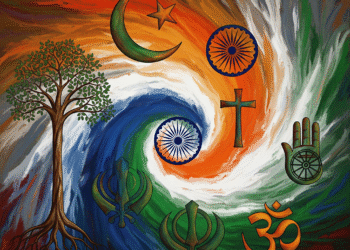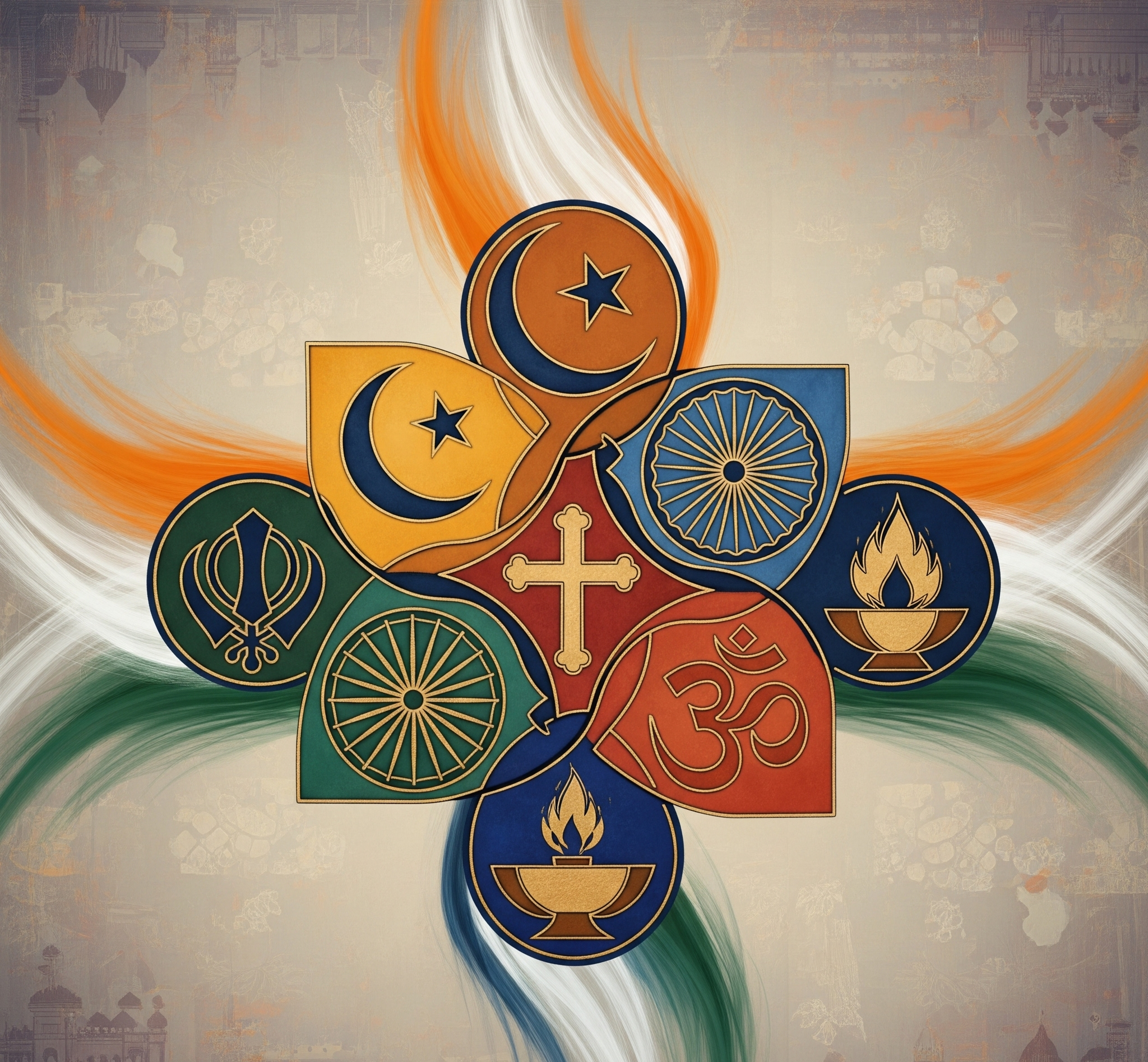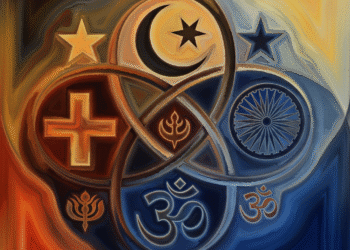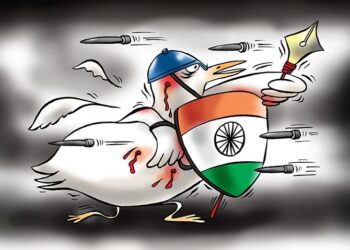Democracies are noisy and are also conveniently arithmetical, for they rely on simple process of counting and being counted. If you have the numbers on your side you might justifiably fancy bulldozing virtually anything howsoever sturdy, including the government of the day.
A certain Babaji found this particular truth conducive to his dreams and desires. But then, he seemingly missed something crucial. The number game has its own intricacies. And Babaji turned out to be a complete novice in that respect. His chit-waving adversaries did not fare too well on that count either. It was a battle of two elitist parties with political naivete writ large. They apparently had no idea of how an emotional common man of this country reacts to such things.
Need I specify that India is an emotional country and can be taken for a ride in the name of religion and corruption alike? And we, being a gullible people, can easily trust the seemingly pious ‘babas’ to deal with the palpably corrupt ‘babus’. So, our Babaji here took a leaf out of the bulky black book of corruption and zoomed into the issue of black money stashed away abroad.
 The black money talk has been around since the Stone Age, almost. Supreme Court brought it to the fore and the Babaji decided to use it as a springboard to take a plunge into the political ocean of the world’s largest democracy.
The black money talk has been around since the Stone Age, almost. Supreme Court brought it to the fore and the Babaji decided to use it as a springboard to take a plunge into the political ocean of the world’s largest democracy.
The nation watched eagerly the tussle between the most popular Yoga guru of the day and the Central Government, but the closed-door talks complicated the issue right from the start. Corruption is best countered by transparency, and closed doors are the very antithesis of transparency. It suits tactful diplomats, but to simplistic Satyagrahis, truth — and not ‘tact’ — is the weapon to fight with, and also the ideal to fight for. They put up a fearless fight for the right and the truth and do not do a ‘Shivaji-in-feminine-garb’ without an Aurangzeb. It’s hard to imagine our mild, gentlemanly Prime Minister as the Mughal fundamentalist emperor.
On the other hand, it is equally hard, if not harder, to see Babaji as a Gandhian Satyagrahi, which is the only acceptable kind of a Satyagrahi anyway.
Babaji missed both the political and the moral nuances of Satyagraha. Fasting is a tool, a way, a mode of Satyagraha. Satyagraha is not as much about results as about the right endeavour for the right ends very much in line with Lord Krishna’s teachings in Srimad Bhadwad Gita.
One hangs in there to bear the heartless caning and thrashing, and does not seek an escape shivering in terror. The path of non-violence which is a necessary element of Satyagraha is not for the frail hearted and weak spirited, or for those who seek security behind a wall of numbers. One has to step out and submit oneself to merciless violence of the heartless oppressors without looking at the effect it might or might not be having on the circumstances one wishes to change by one’s efforts.
One has to do choose one’s own ‘right path’ and stick to it without resorting to violence of any kind against anyone. It is a form of ‘Nishkaam Karmayoga’ that has no tolerance for egoistic traits. Self-defense by way of violent retaliation has absolutely no place in the scheme of Gandhian Satyagraha. Therefore, any talk of raising a ‘protection group’ or ‘counter force’ for self-defense is clearly out of sync with Satyagraha. If it was inappropriate against foreign oppressors, there is no way to justify the same against a democratically elected government fully accountable to the people as well as other Constitutional authorities for the purpose.
Satyagraha is a tool of protest that can only be employed in its pure form with its essentials unadulterated. There can be no such thing as ‘armed satyaraha’ just as much as there can be no such Satyagraha where the group that protests is different from the group that gets beaten up. So, there is no way to defend the ‘self-defense’ protection group that the Babaji talked about.
May be the Yoga Guru has self-destructed much of his appeal with the people, for even his most ardent supporters find it difficult to defend some of Babaji’s actions.
The issue would keep bouncing back and around for quite some time, for the one good thing that the recent anti-corruption protests have managed to do is make corruption a mainstream debate. And we have clearly expressed our unwillingness to submit to it like meek cows the way we had begun to. However, despite the gravity of the situation the protesters must stick to Constitutionally permissible methods.
Most importantly, religion or communal inclinations of the protesters are likely to do more damage than good. Not even a hint of saffron or green or any other colour except white — the colour of peace and harmony — has any place in the nationalistic struggle that anti-corruption protests necessarily are.
On its part the government must engage constructively instead of raking up issues like place of birth, passports or somebody’s income issues because it can only be seen as an attempt to oppress protesters. And if tyranny is added to the concoction of rising inflation and rising corruption, the ruling party might find itself left out in the sun to dry by the electorate as soon as it’s time for the people to issue a fresh mandate.
We Indians might be emotional and dynasty-worshiping fools, but we do have a knack for ousting anyone who starts acquiring dictatorial colours. Of course, we give second chances but not before heaping loads of embarrassment.
What I fail to understand is why the Babajis and the governments think that we would believe whatever they say when even children no longer trust what their parents say? Did that sound too bad? Well, let’s go back to sleep then.
Originally published as part of my monthly column — STREET LAWYER — in LAWYERS UPDATE [August 2011 Issue; Vol. XVII, Part 8]






